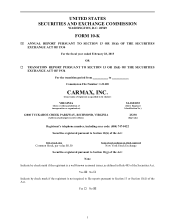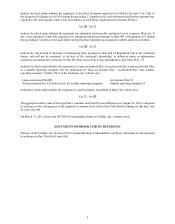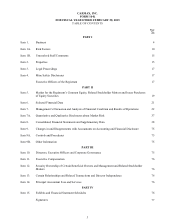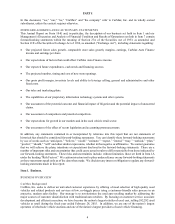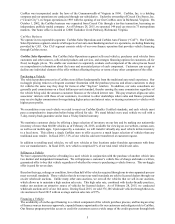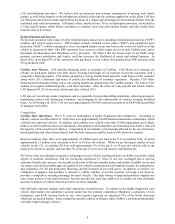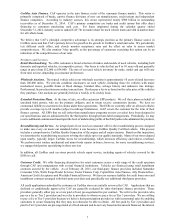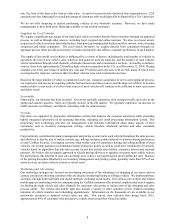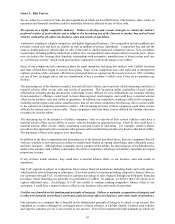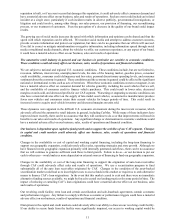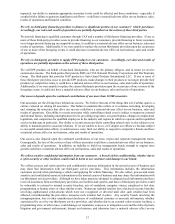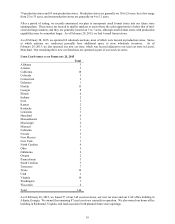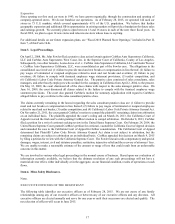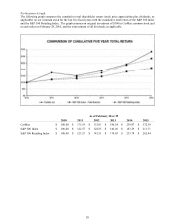CarMax 2015 Annual Report Download - page 15
Download and view the complete annual report
Please find page 15 of the 2015 CarMax annual report below. You can navigate through the pages in the report by either clicking on the pages listed below, or by using the keyword search tool below to find specific information within the annual report.11
reputation is built, or if an event occurs that damages this reputation, it could adversely affect consumer demand and
have a material adverse effect on our business, sales and results of operations. Such an event could include an isolated
incident at a single store, particularly if such incident results in adverse publicity, governmental investigations, or
litigation and could involve, among other things, our sales process, our provision of financing, our reconditioning
process, or our treatment of customers. Even the perception of a decrease in the quality of our brand could impact
results.
The growing use of social media increases the speed with which information and opinions can be shared and thus the
speed with which reputation can be affected. We monitor social media and attempt to address customer concerns,
provide accurate information and protect our reputation, but there can be no guarantee that our efforts will succeed.
If we fail to correct or mitigate misinformation or negative information, including information spread through social
media or traditional media channels, about the vehicles we offer, our customer experience, or any aspect of our brand,
it could have a material adverse effect on our business, sales and results of operations.
The automotive retail industry in general and our business in particular are sensitive to economic conditions.
These conditions could adversely affect our business, sales, results of operations and financial condition.
We are subject to national and regional U.S. economic conditions. These conditions include, but are not limited to,
recession, inflation, interest rates, unemployment levels, the state of the housing market, gasoline prices, consumer
credit availability, consumer credit delinquency and loss rates, personal discretionary spending levels, and consumer
sentiment about the economy in general. These conditions and the economy in general could be affected by significant
national or international events such as acts of terrorism. When these economic conditions worsen or stagnate, it can
have a material adverse effect on consumer demand for vehicles generally, including the used vehicles that we sell,
and the availability of consumer credit to finance vehicle purchases. This could result in lower sales, decreased
margins on units sold, and decreased profits for our CAF segment. Worsening or stagnating economic conditions can
also have a material adverse effect on the supply of late-model used vehicles, as automotive manufacturers produce
fewer new vehicles and consumers retain their current vehicles for longer periods of time. This could result in
increased costs to acquire used vehicle inventory and decreased margins on units sold.
These dynamics were apparent in the difficult U.S. economic environment during the most recent recession, which
adversely affected the automotive retail industry in general, including CarMax. While many of these indicators have
improved more recently, there can be no assurance that they will continue to do so or that improvements will result in
benefits to our sales and results of operations. Any significant change or deterioration in economic conditions could
have a material adverse effect on our business, sales, results of operations and financial condition.
Our business is dependent upon capital to fund growth and to support the activities of our CAF segment. Changes
in capital and credit markets could adversely affect our business, sales, results of operations and financial
condition.
Changes in the availability or cost of capital and working capital financing, including the long-term financing to
support our geographic expansion, could adversely affect sales, operating strategies and store growth. Although we
have financed recent geographic expansion primarily with internally generated cash flows, there can be no assurance
that we will continue to generate sufficient cash flows to fund growth. Failure to do so—or our decision to put our
cash to other uses—would make us more dependent on external sources of financing to fund our geographic expansion.
Changes in the availability or cost of the long-term financing to support the origination of auto loan receivables
through CAF could adversely affect sales and results of operations. We use a securitization program to fund
substantially all of the auto loan receivables originated by CAF. Changes in the condition of the asset-backed
securitization market could lead us to incur higher costs to access funds in this market or require us to seek alternative
means to finance CAF’s loan originations. In the event that this market ceased to exist and there were no immediate
alternative funding sources available, we might be forced to curtail our lending practices for some period of time. The
impact of reducing or curtailing CAF’s loan originations could have a material adverse effect on our business, sales
and results of operations.
Our revolving credit facility, term loan and certain securitization and sale-leaseback agreements contain covenants
and performance triggers. Any failure to comply with these covenants or performance triggers could have a material
adverse effect on our business, results of operations and financial condition.
Disruptions in the capital and credit markets could adversely affect our ability to draw on our revolving credit facility.
If our ability to secure funds from the facility were significantly impaired, our access to working capital would be


